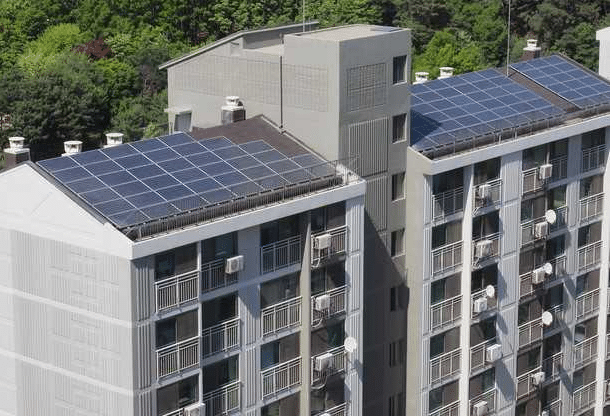A high-tech Sydney apartment building has turned solar energy retailer to knock around 20 per cent off residents’ power bills. Apartment solar energy has been an elusive concept, but this may be the start of a new approach.
The Burcham apartment building in Rosebery uses a 53 kW solar panel system to generate 70,000 kWh of energy ever year. This is topped up with wholesale grid power bought in bulk to ensure reliable supply and savings for residents.
It uses an embedded energy network to do this. Burcham Energy acts as one consumer for the entire building. Supplying energy through a single ‘gate’ works more efficiently than having a collection of individuals using different retailers and plans.
Apartment solar energy retailer manages more effectively
Solar power generated is not sufficient to meet Burcham’s total energy needs. Because of this, Burcham Energy buys power from the grid to ensure a 24-hour supply.

Burcham’s body corporate manages the scheme and takes a share of the profits. However, income received exceeds the money spent on powering common areas. This therefore reduces overall strata fees.
Because each apartment comes equipped with built-in monitors, residents can also check their electricity use.
They can see how much energy they use on individual circuits, and reduce where necessary.
EV chargers may be compulsory over the next decade
The Burcham also features four EV (electric vehicle) chargers in its car parks. These can refuel an EV in about two hours.
Ed Horton from developer Stable Group believes the installation of EV chargers will be mandatory in Australian apartment blocks and multi-level buildings in the next five to ten years.
More than 50 per cent of new global car sales will be electric by 2040, according to Bloomberg data.
sonnenFlat – the energy retailer alternative
For residents who own rooftop solar systems, the sonnenFlat scheme is another way households can become their own solar energy retailer.
With sonnenFlat, sonnen battery owners nominate sonnen as their energy retailer. They then pay a flat monthly fee for their electricity, but receive no bill.
In return, sonnen controls the Sydney home’s solar system and battery and can either use the power to sell in the electricity market, or direct it for household use.













































